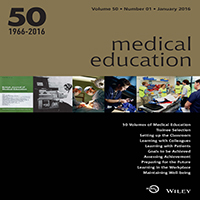Episodes
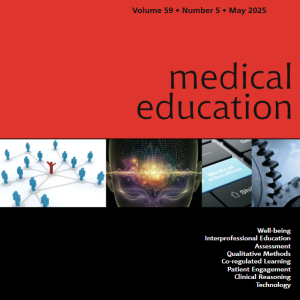
Tuesday May 06, 2025
Tuesday May 06, 2025
@LorenzoMadrazo and colleagues' scoping review on illness presenteeism summarizes the literature on physicians and trainees coming to work sick, highlighting the complexities of this phenomenon
Read the accompanying article here: https://doi.org/10.1111/medu.15538
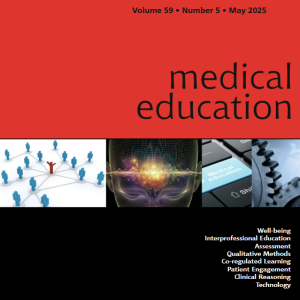
Tuesday May 06, 2025
Tuesday May 06, 2025
Academic Advisors: great on paper, greatly difficult in practice. The authors studied impacts of 10 advisor-resident dyads' collaborations over two years. Misalignments abounded, despite great intentions.
Read the accompanying article here: https://doi.org/10.1111/medu.15549
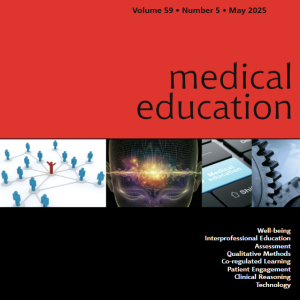
Tuesday May 06, 2025
Tuesday May 06, 2025
Our Editor-in-chief details Medical Education's policy on the use of artificial intelligence in publishing.
Read the accompanying article here: https://doi.org/10.1111/medu.15495
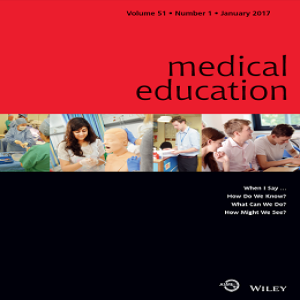
Tuesday Apr 15, 2025
Tuesday Apr 15, 2025
Looking to enhance your qualitative research interviews with new techniques? This integrative review captures strategies from across interdisciplinary literature to offer advice on how to choose between them.
Read the accompanying article here: https://doi.org/10.1111/medu.15555

Tuesday Apr 15, 2025
Tuesday Apr 15, 2025
Student-led clinics generate benefits to multiple stakeholders including students, patients the health system & universities. This paper explores the need to measure costs & benefits to ascertain value.
Read the accompanying article here: https://doi.org/10.1111/medu.15550
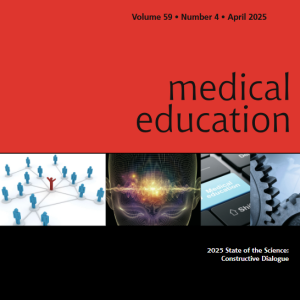
Thursday Apr 03, 2025
Thursday Apr 03, 2025
Exploring emotional dilemmas associated with end-of-life decisions, @diegolimaribei4 reveal how final year medical students facing the pivotal moral challenge of connecting with or detaching from patients is a transformative journey.
Read the accompanying article here: https://doi.org/10.1111/medu.15545
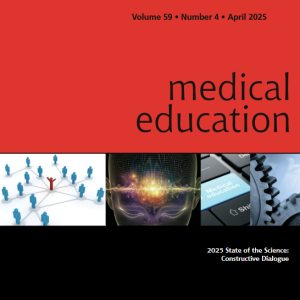
Thursday Apr 03, 2025
Thursday Apr 03, 2025
Behrens et al. document how facilitators vary when handling student emotions during simulation—some adjust, some let emotions run, others debrief after. They explore how beliefs about learning shape responses and what can be done to optimize learning.
Read the accompanying article here: https://doi.org/10.1111/medu.15554

Friday Mar 21, 2025
Friday Mar 21, 2025
Clinical Competence Committees are found to be deliberate in focusing on trainee development but notably less likely to be deliberate regarding trainee entrustment and advancement decisions #cbme #patientsafety

Friday Mar 21, 2025
Friday Mar 21, 2025
This paper addresses how the repetitive and everyday use of ill-defined and uncritical gendered and sexed language upholds systems of cisheteropatriarchy, coloniality, and transphobia within medicine.
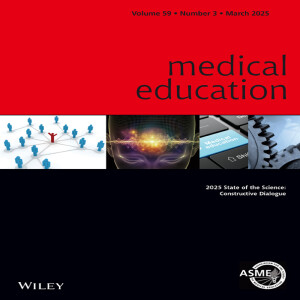
Wednesday Mar 05, 2025
Wednesday Mar 05, 2025
Finding elements of imposter phenomenon in 52% of student reflections, much of it driven by self-comparisons to idealizations, the authors argue that journaling can help normalize imposterism, aiding identity growth as future physicians.
Read the accompanying article here: https://doi.org/10.1111/medu.15533

